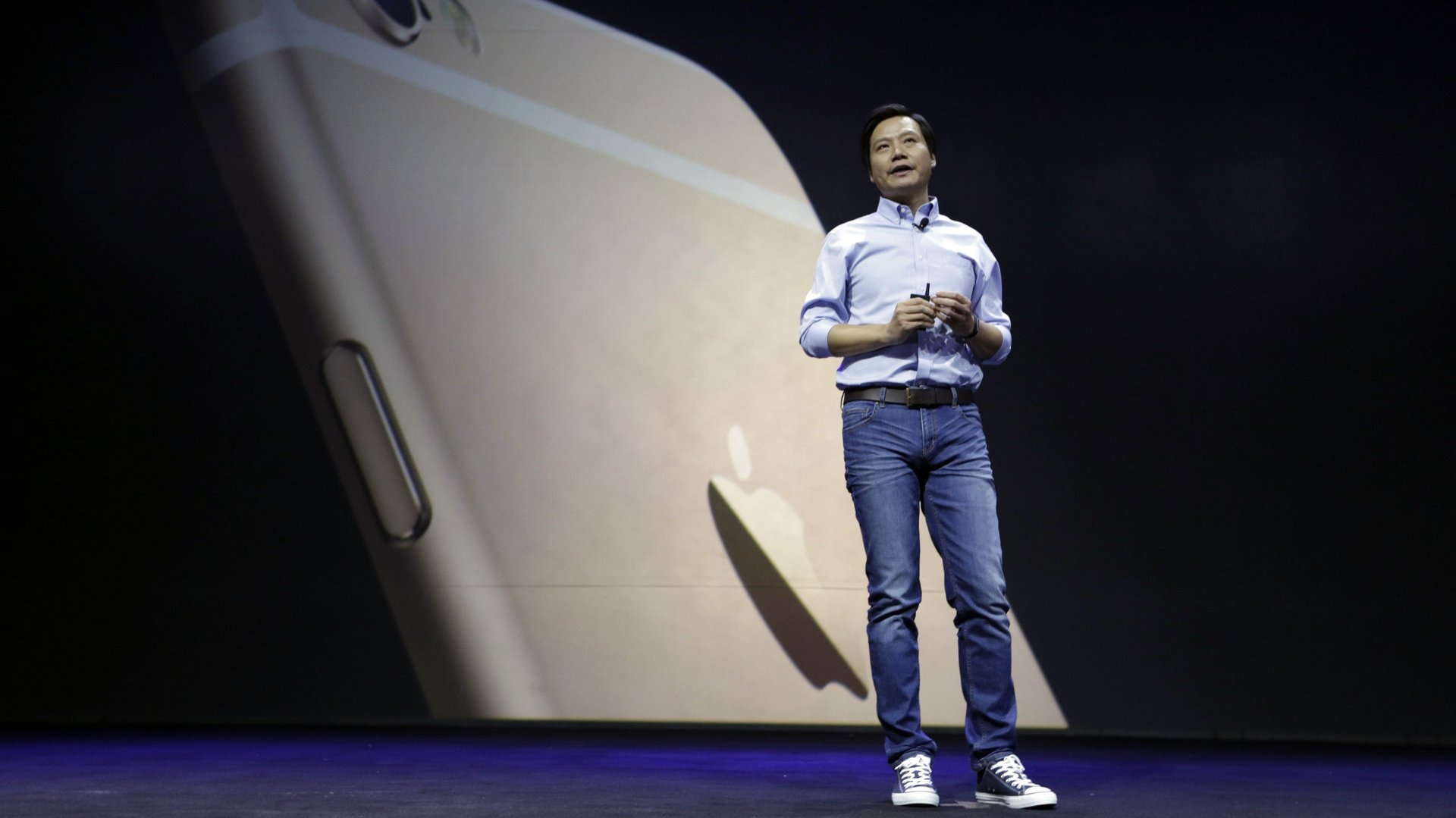The Paradise Papers suggest Chinese tech billionaire Lei Jun is connected to the world’s biggest bitcoin miner
Update (Nov. 27): Lei Jun denies investing in bitcoin or Bitmain; Bitmain says the entity linked to Lei Jun in the Paradise Papers is not a shareholder.


Update (Nov. 27): Lei Jun denies investing in bitcoin or Bitmain; Bitmain says the entity linked to Lei Jun in the Paradise Papers is not a shareholder.
Lei Jun amassed a $7 billion fortune by making stylish, affordable smartphones under the Xiaomi brand. He’s now one of China’s richest men, and is often considered China’s answer to Steve Jobs, for his emphasis on design and the wild success of Xiaomi handsets in a crowded market. It turns out he may be adding to his fortune via the lucrative world of bitcoin mining, through a connection to the world’s largest manufacturer of bitcoin-mining equipment, Beijing-based Bitmain.
A connection between Lei Jun and Bitmain is interesting because the tech billionaire has never publicly expressed an interest in cryptocurrencies. If Lei is connected to Bitmain, it would be the equivalent of an Elon Musk or Jeff Bezos revealing a stake in a bitcoin firm—conferring a major stamp of legitimacy for cryptocurrencies. Bitmain, for its part, has always maintained that it is self-funded, primarily through co-founder Jihan Wu’s early bitcoin holdings, having only recently raised outside funds from blue-chip VCs Sequoia and IDG.
The nature of Lei Jun’s connection to Bitmain isn’t entirely clear. According to a database of information from the Paradise Papers leak maintained by the International Consortium of Investigative Journalists (ICIJ), two entities that Lei Jun controls are related to a firm called Beijing Changtong Wuxian Consulting Company. Beijing Changtong is in turn connected to four entities controlled by Bitmain’s co-founders, Wu and Micree Zhan.
Beijing Changtong’s connections to Bitmain-related firms are classified by the ICIJ as “other.” According to the ICIJ, the entities linked to an “other” entity are part of the same holding group. This could mean that Lei Jun’s vehicles are part of a holding group with the Bitmain founders’ firms, under the umbrella of Beijing Changtong. A Bitmain spokesman said that Beijing Changtong is not a Bitmain shareholder. “These claims are not true. We used to hire the same lawyer as Lei Jun did. That may have caused this misunderstanding,” the spokesman said. Xiaomi declined to comment when contacted by Quartz. But Lei Jun posted on social media today (Nov. 27) that he has not invested in bitcoin or manufacturers of bitcoin miners, according to the South China Morning Post. The ICIJ did not respond to a request for clarification. Xiaomi declined to comment.
Here’s the rundown of connections in the Paradise Papers database:
- Xiaomi’s Lei Jun controls Colorful Mi Ltd and Red Better Ltd
- Bitmain’s Jihan Wu controls Wu Ji Han & Co Ltd
- Bitmain’s Micree Zhan controls Bitmain Cowin Inc and DivaIPTV Ltd
- Successful Cool Ltd holds shares in BitMain Technologies Holding Company
- All of the above appear to be part of a holding group called Beijing Changtong Wuxian Consulting Company
Bitmain claims to have manufactured about 70% of the world’s bitcoin-mining rigs. Bitcoin miners commit vast computational resources and use huge amounts of electricity to unlock some of the $20 million (more or less, depending on the price of bitcoin) that the bitcoin network dispenses each day to miners. The bitcoin network is estimated to consume as much electricity as a small country each year. Oman is the closest equivalent right now.
Bitmain dominates bitcoin mining. Besides manufacturing specialized rigs, it also designs the silicon that goes in them. It operates mining pools, allowing individual miners to add their processing power to a larger whole, thus improving their chances of a payout. It also rents out processing power to clients, and mines for its own account, operating vast data centers in China’s Inner Mongolia and Xinjiang autonomous regions, where electricity, land, and labor are cheap.
Bitmain appears to be hugely profitable. It probably paid up to $400 million last year to TSMC, the world’s largest contract manufacturer of chips, to fabricate custom-designed silicon for its AntMiner bitcoin-mining rigs. On its last earnings call, TSMC revealed that cryptocurrency clients account for 5% of its revenues. Bitmain is the only known rig manufacturer with a TSMC contract. One estimate by noted bitcoin analyst and developer Jimmy Song pegs Bitmain’s profit from selling its newest rigs at up to $250 million this year. That could well represent another winning investment for Lei Jun.